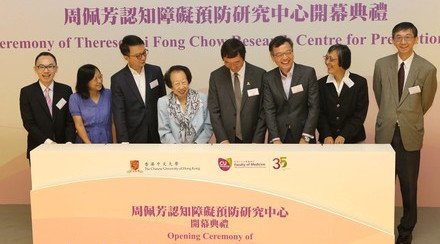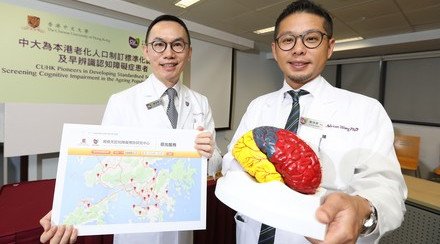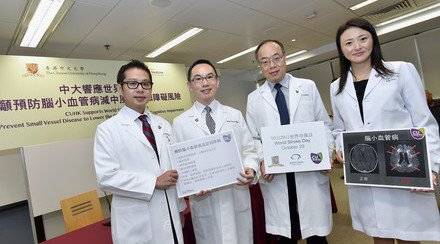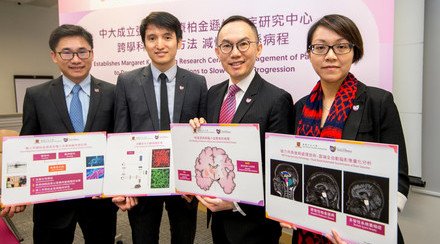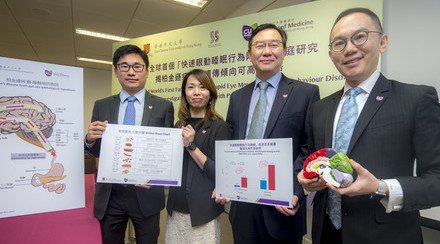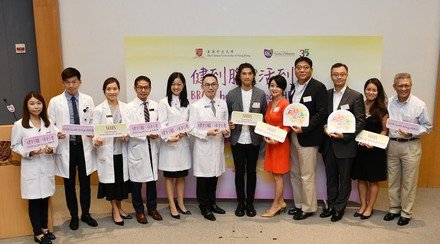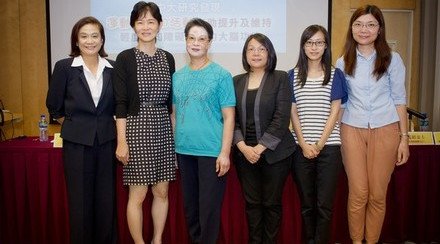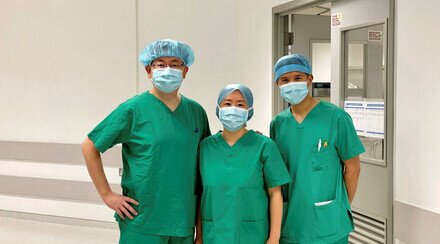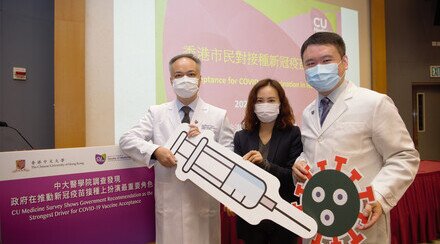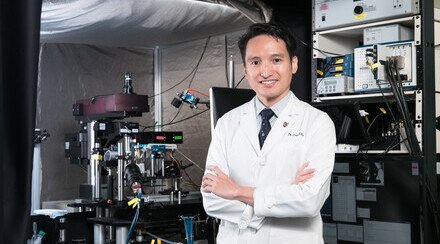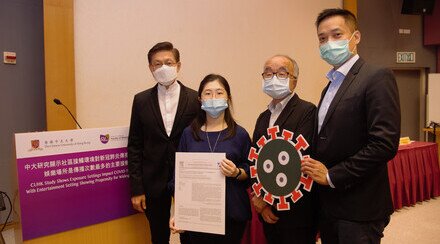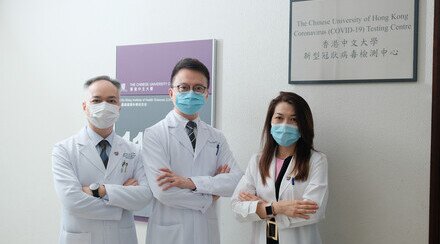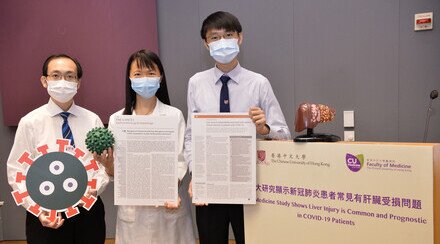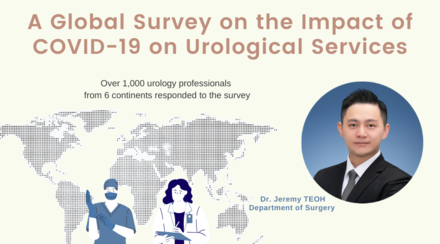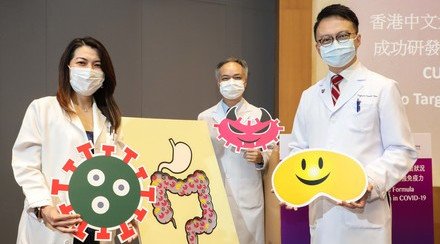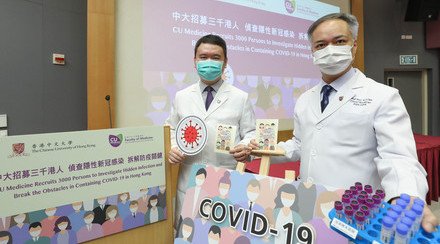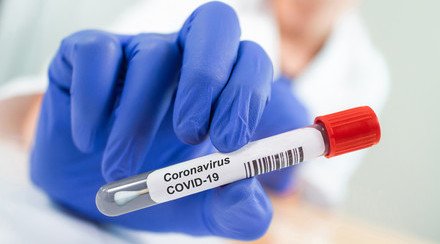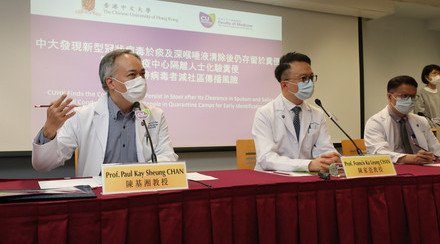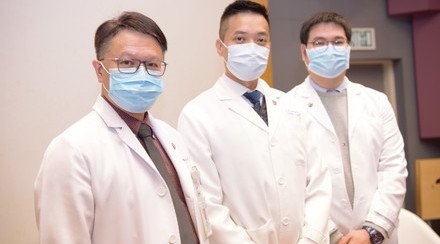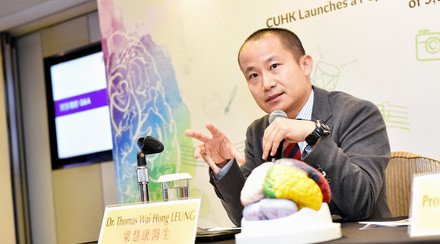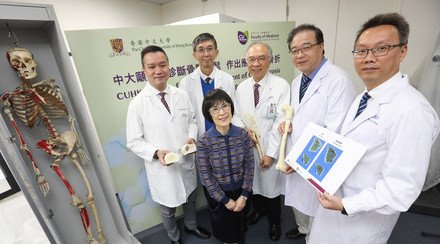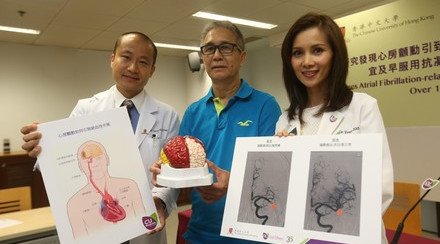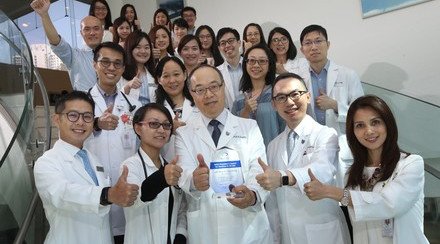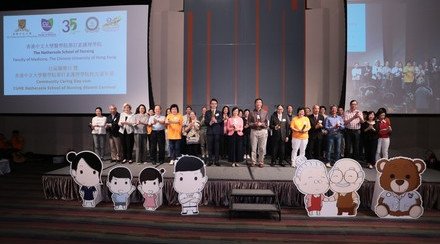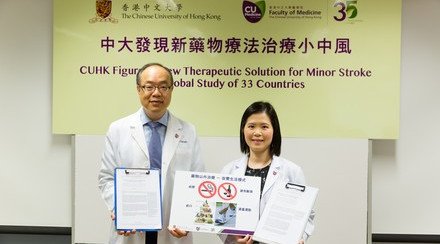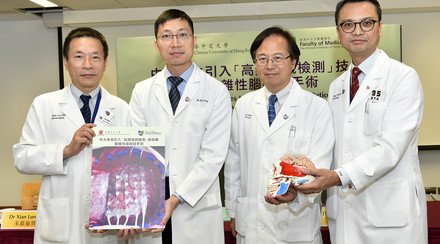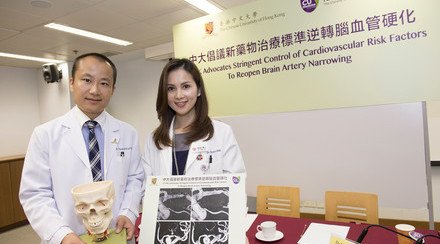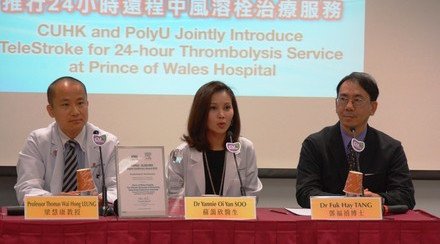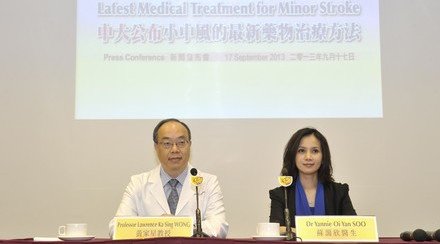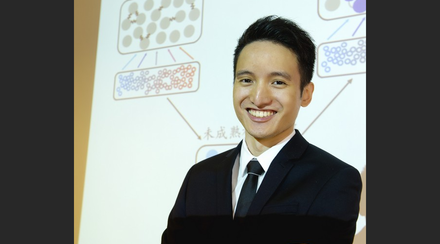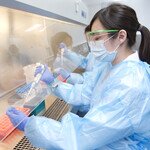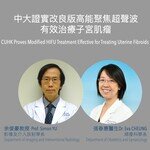Most Deaths from COVID-19 in Hong Kong are of 60 Years Old or Above CUHK Initiated International Effort in Devising Strategies to Protect Older People with Dementia amid COVID-19 Pandemic
The older population and those with dementia around the world are facing an unprecedented threat from COVID-19 which threatens them with a higher risk of death when infected. As of 23 August 2020, in Hong Kong, the mortality rate for people aged 60 or above was around 6.27%, which was almost 105 times of those below 60 (0.06%). All deaths from the third wave of COVID-19 in Hong Kong are 60 years old or above. Data from the United Kingdom showed that having dementia was associated with a two-fold increase in the risk of death from COVID-19. In light of this, a dementia team of the Faculty of Medicine at The Chinese University of Hong Kong (CU Medicine), initiated an international effort to devise strategies that can reduce the adverse impact which can come from public health interventions and protect them from getting COVID-19.
The expert team was led by Professor Vincent Chung Tong MOK, Head of the Division of Neurology, Department of Medicine and Therapeutics at CU Medicine, in collaboration with renowned dementia experts from 29 universities in 16 countries around the world, including the University of Oxford, Vrije University of Amsterdam, University of Toronto, University of Cambridge, Harvard University, and Karolinska Institute. Professor MOK remarked, “The various public health interventions, such as staying at home or lockdown may have negative effects upon patients’ physical and mental health.” The team proposed a number of strategies for the elderly and patients with dementia to receive the appropriate treatments during the pandemic which they have just been published in this month’s Alzheimer’s & Dementia, the official journal of the international Alzheimer’s Association.
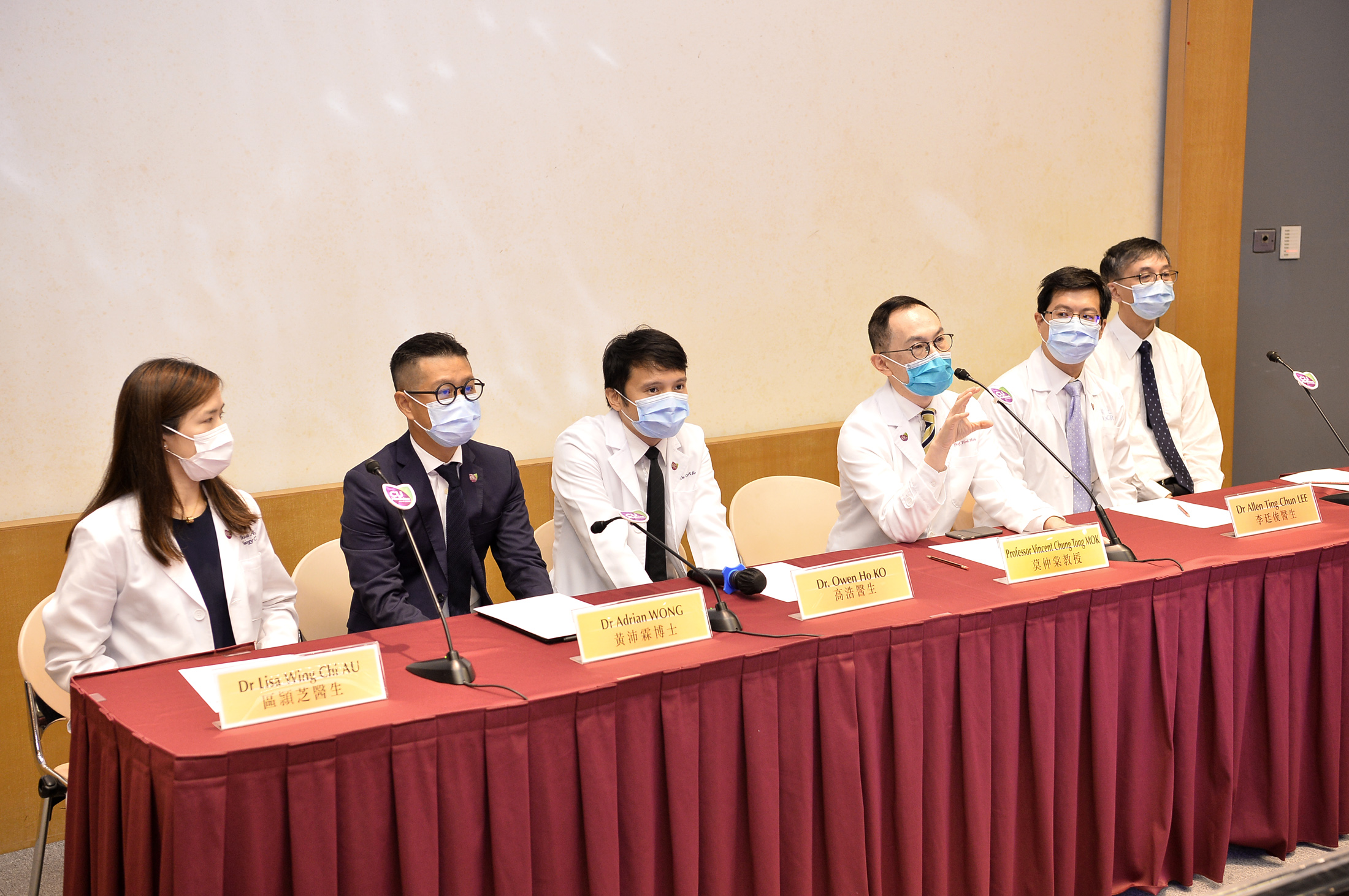
CU Medicine’s dementia team initiated an international effort to devise strategies that can reduce the adverse impact on the elderly and patients with dementia which can come from public health interventions and protect them from getting COVID-19.
(From left): Dr Lisa AU, Neurologist at CUHK Medical Clinic and Clinical Professional Consultant, Department of Medicine and Therapeutics; Dr Adrian WONG, Clinical Psychologist and Research Assistant Professor, Department of Medicine and Therapeutics; Dr Owen KO, Head of Translational Neuroscience Unit of the Division of Neurology, and Assistant Professor, Department of Medicine and Therapeutics and School of Biomedical Sciences; Professor Vincent MOK, Head of the Division of Neurology, Department of Medicine and Therapeutics; Dr Allen LEE, Assistant Professor, Department of Psychiatry; and Professor Timothy KWOK, Team Leader of the Division of Geriatrics, Department of Medicine and Therapeutics, at CU Medicine.
Analysing reasons for the higher likelihood of death in elderly or patients with dementia infected with COVID-19
The team analysed the reasons for adverse clinical outcomes in patients with dementia who are infected with COVID-19. Dr Owen Ho KO, Head of Translational Neuroscience Unit of the Division of Neurology, and Assistant Professor, Department of Medicine and Therapeutics and School of Biomedical Sciences at CU Medicine, explained, “The existing medical research has revealed that the causes for the higher mortality among older people with dementia are multiple, and may include an impaired immune system associated with those with dementia. In particular, older people who carry a gene involved with Alzheimer’s disease, such as ApoE4, may have an increased risk of being infected by COVID-19, so triggering a more dysregulated inflammatory process, which may involve the brain as well. Yet, such a hypothesis needs to be further studied and validated in scientific and clinical studies.”
In view of the high mortality associated with COVID-19 among the older people and those with dementia, the priority is to protect them from getting COVID-19.
CU Medicine and international dementia experts advocate the use of telemedicine and strengthen community support
The aims of the strategies suggested by CU Medicine and international experts are to provide appropriate treatments to dementia patients as well as to support their caregivers amid the COVID-19 pandemic. For example, enforcement of public health measures such as staying at home or lockdown or fear of getting infection during visits have led to a major reduction in people attending hospitals or clinics during the outbreak, all over the world. The international experts have proposed the use of “Telehealth” to ensure that the best care continues to be delivered to patients during the outbreak. Dr Lisa Wing Chi AU, Neurologist at CUHK Medical Clinic and Clinical Professional Consultant, Department of Medicine and Therapeutics at CU Medicine, stated, “In cases where a major lockdown is needed in a city, medical practitioners can use telemedicine to conduct online consultation and give medical advice to suitable patients. This helps to ensure that the appropriate treatments can still be delivered to patients safely and professionally amid COVID-19.”
The international experts advocate that health care professionals, including doctors, nurses, therapists and pharmacists in public or private settings, along with people from other related fields such as insurance and information technology, should work together to support the professional use of telehealth in society in order to safeguard the health of older people amid current or future outbreak waves.

Professor Vincent MOK states that various public health interventions, such as staying at home or lockdown, may have negative effects upon dementia patients’ physical and mental health.
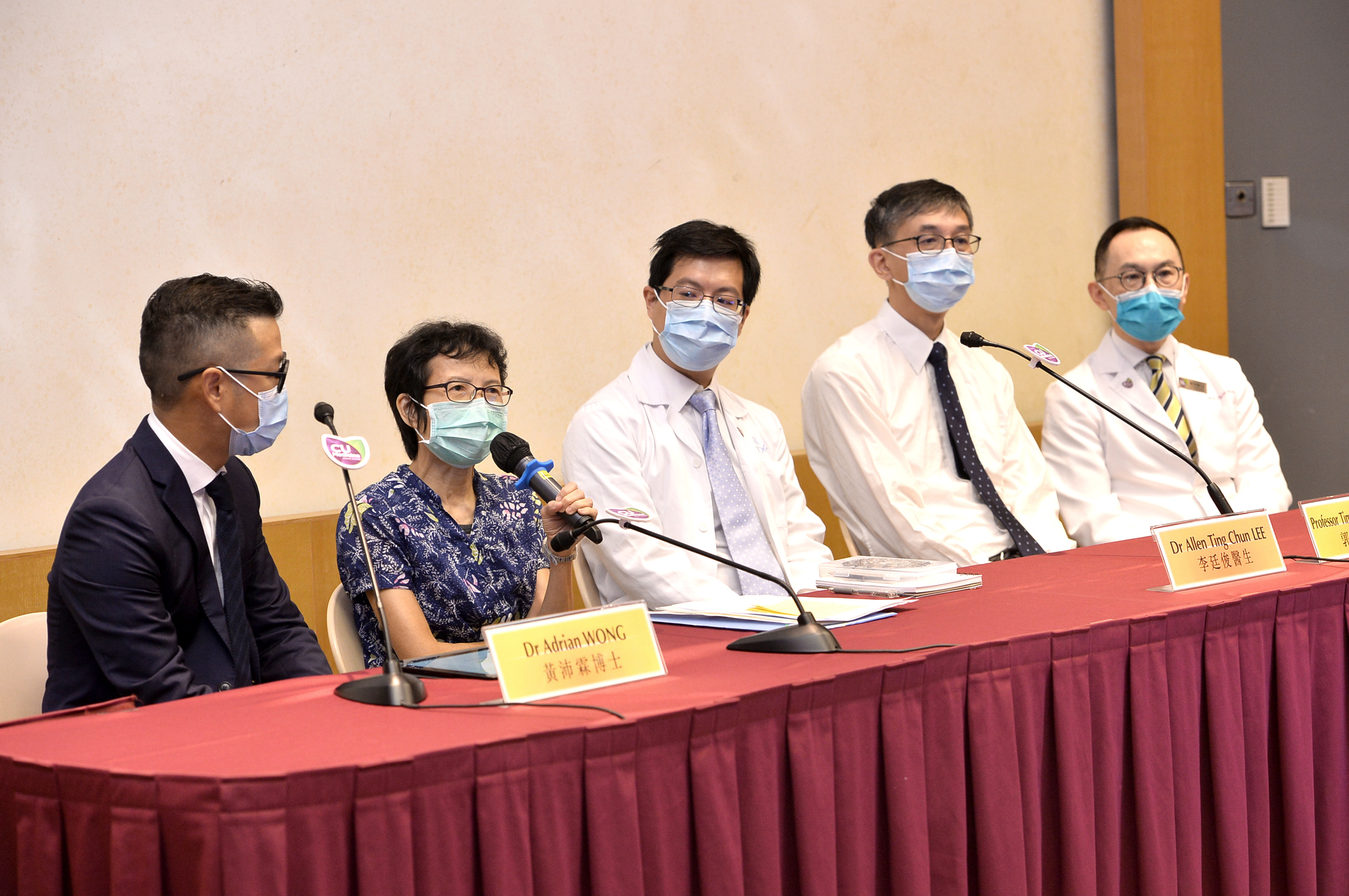
(2nd from left) Ms Ng shares her experiences in taking care of family members with dementia amid COVID-19 pandemic.
Many elderly and day care centres which provides community services for dementia patients and caregivers were suspended during the outbreak. Professor Timothy Chi Yui KWOK, Team Leader of the Division of Geriatrics, Department of Medicine and Therapeutics at CU Medicine, encourages activity. “Patients should remain physically active to maintain health and psychological well-being. Family caregivers should take them out for short walks, as long as the environment is not crowded and the patients can tolerate face masks. Day care centres should remain open to those who get agitated or caregivers who are too stressed, while strict infection control should be maintained.”
In addition, many patients are experiencing depression, loneliness, or agitation during the pandemic. Dr Allen Ting Chun LEE, Assistant Professor, Department of Psychiatry at CU Medicine, warned, “Although showing support and empathy may ease behavioural problems, there is a possibility that these behavioural problems may escalate and even result in bodily injury. In case one cannot get assistance from friends, relatives, or a nearby day care centre, it is important to seek help from medical professionals as soon as possible.”
The analysis also indicated that apart from the patients, informal caregivers may also experience increasing stress during the outbreak. Dr Adrian WONG, Clinical Psychologist and Research Assistant Professor, Department of Medicine and Therapeutics at CU Medicine, advised, “Caregivers should also look after their own well-being. There are indeed many ways, such as mindfulness exercises, that can help to relieve stress. It is encouraging to learn that many social workers and volunteers are providing support to family caregivers by phone or other on-line platforms during the outbreak.”
The dementia team at CU Medicine involved in this initiative also includes Professor Linda LAM (Department of Psychiatry) and Dr Bonnie LAM (Division of Neurology, Department of Medicine and Therapeutics). Professor Vincent MOK concluded, “The research team would like to pay tribute to all frontline health-care providers, including doctors, nurses, therapists, psychologists, social workers, health care assistants, personal service workers, and informal caregivers, family members, neighbours or volunteers, who have been providing the best care and support possible for older people with dementia in Hong Kong and around the globe during COVID-19.”


